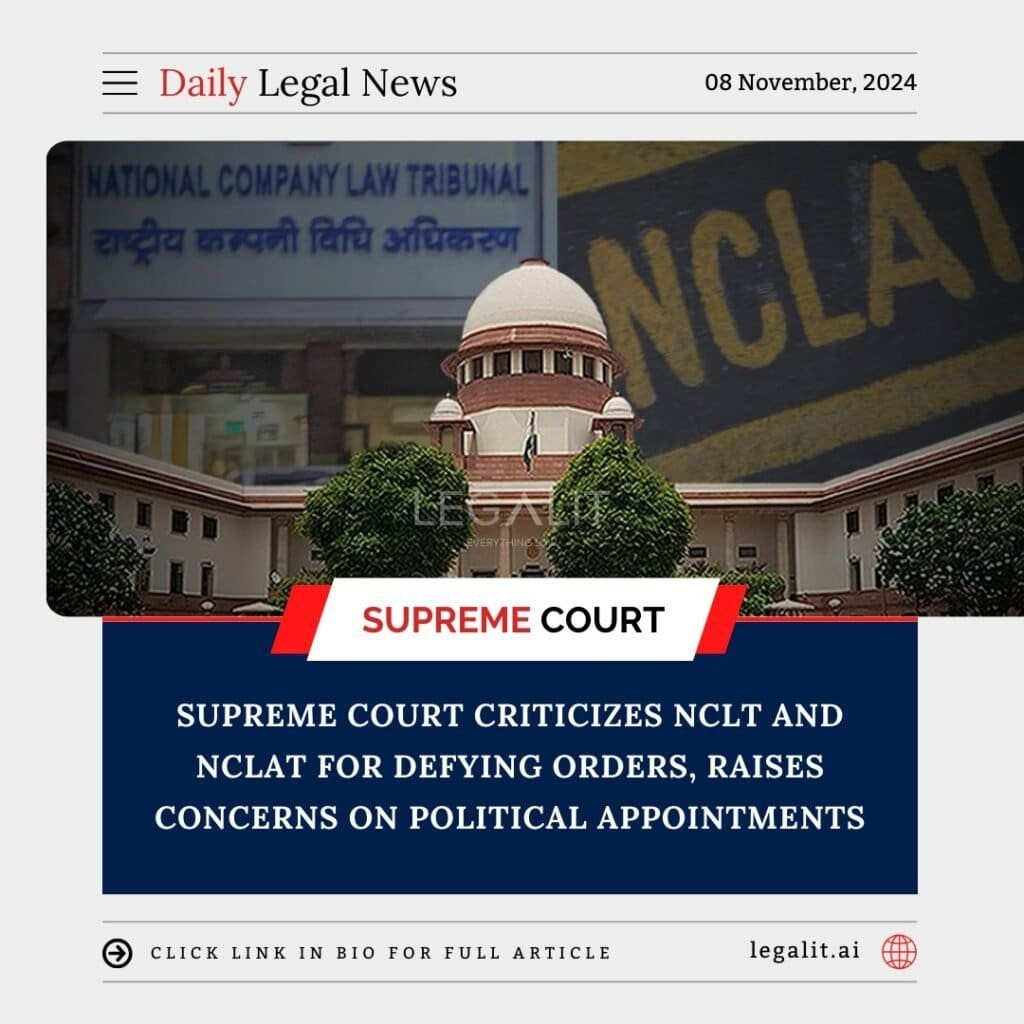
The Supreme Court of India recently criticized the National Company Law Tribunal (NCLT) and the National Company Law Appellate Tribunal (NCLAT) for failing to follow its directives. The Court expressed disappointment at the tribunals’ actions, which it viewed as undermining judicial authority, and highlighted issues with the tribunals’ independence amid concerns of political influence in appointments.
Background:
The Supreme Court’s reprimand followed instances where the NCLT and NCLAT allegedly did not comply with its instructions, leading to a significant impact on the cases and parties involved. Such deviations have raised questions about adherence to the judicial hierarchy and the role of these tribunals in ensuring compliance with Supreme Court rulings.
Court’s Rationale:
The Supreme Court underscored the importance of maintaining judicial discipline and the authority of its orders across lower courts and tribunals. Any defiance, the Court argued, not only damages the public’s trust in the judiciary but also disrupts the rule of law. By highlighting this issue, the Court sent a strong message about the importance of compliance within the judicial system to maintain integrity and avoid judicial overreach.
Existing Measures:
In response to the concerns over independence, the Supreme Court has called for increased transparency and procedural consistency within tribunal appointments. The issue of politically-influenced appointments has led to a broader conversation on the need for a more robust selection process to safeguard tribunal independence.
Conclusion:
This ruling emphasizes the Supreme Court’s commitment to upholding judicial authority and ensuring that tribunals, such as the NCLT and NCLAT, follow its directives without exception. The Supreme Court’s critique of political appointments within these bodies also underscores the need for reforms to ensure tribunal impartiality and reinforce the rule of law. This case could have implications for future appointments and procedural reforms in judicial tribunals across India.